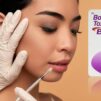
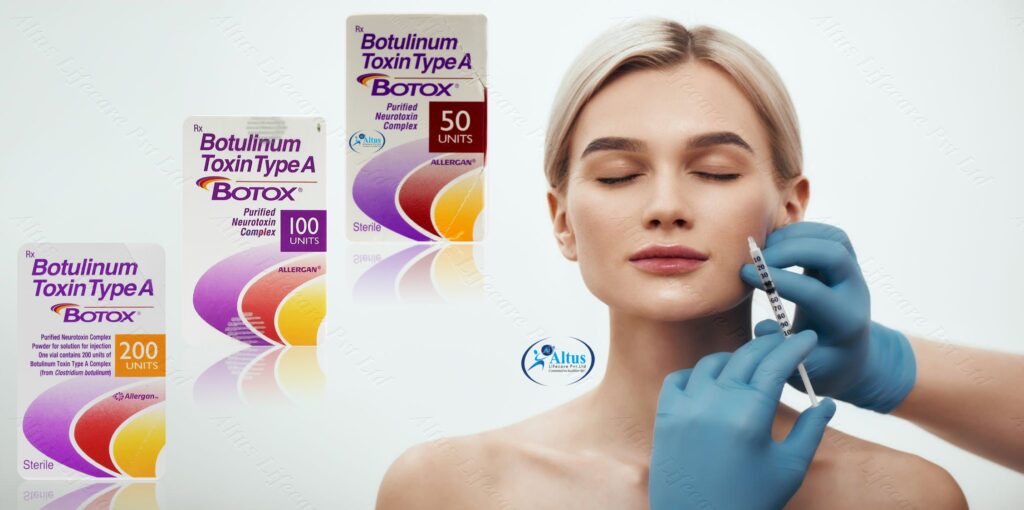
“Rediscover Your Youthful Confidence with Botulinum Toxin type A”
Introduction:
Botulinum Toxin type A, commonly known as Botox, is a potent neurotoxin produced by the bacterium Clostridium botulinum. Despite its association with cosmetic procedures, botulinum-toxin possesses remarkable therapeutic properties that have revolutionized the medical field. This article aims to explore the origins, mechanism of action, medical applications, and safety considerations surrounding botulinum-toxin.

Origins and Classification:
Clostridium botulinum is a spore-forming bacterium found in soil, water, and the gastrointestinal tracts of animals. It produces several serotypes of botulinum-toxin, with serotypes A, B, and E being the most commonly used for medical and cosmetic purposes. These serotypes differ in their potency, duration of action, and target specificity.
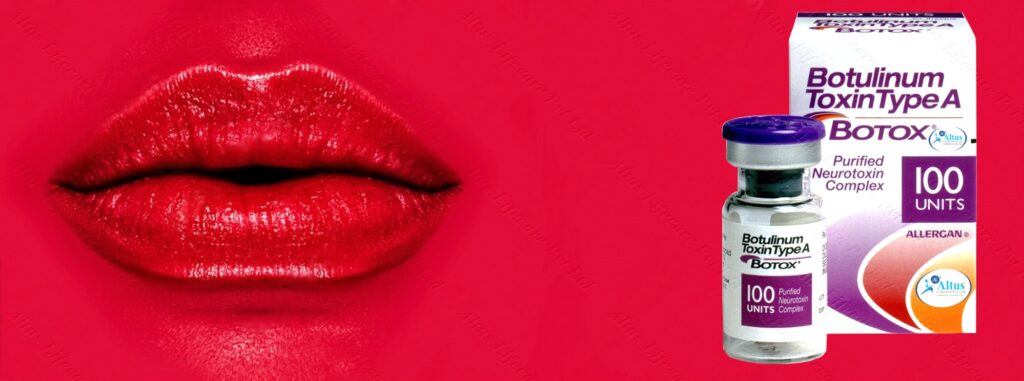
Mechanism of Action:
Botulinum toxin acts by inhibiting the release of acetylcholine, a neurotransmitter responsible for muscle contraction. The toxin enters nerve endings and cleaves specific proteins, preventing the fusion of synaptic vesicles containing acetylcholine with the neuronal membrane. As a result, muscle contractions are blocked, leading to muscle paralysis.
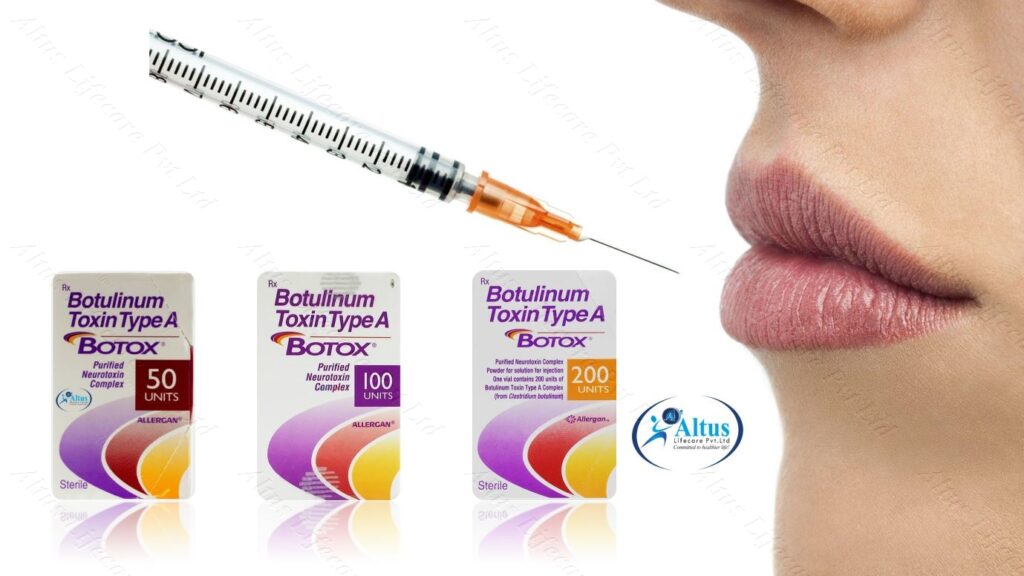
Medical Applications:
Neurological Disorders: Botulinum-toxin is extensively used in the management of various neurological conditions such as cervical dystonia (involuntary neck muscle contractions), spasticity (muscle stiffness), and blepharospasm (involuntary eyelid twitching). It helps relieve muscle spasms and improves overall quality of life for affected individuals.
Ophthalmology: The toxin finds application in the treatment of strabismus (misaligned eyes) and blepharospasm, providing relief by selectively weakening the muscles responsible for these conditions.
Chronic Migraines: Patients with chronic migraines often find relief through the administration of Botulinum-toxin injections. The toxin’s ability to block neurotransmitter release helps reduce the frequency and severity of migraine headaches.
Cosmetics: Botulinum-toxin is widely used in cosmetic procedures to temporarily reduce the appearance of wrinkles and fine lines. By relaxing the facial muscles responsible for creating wrinkles, it provides a smoother and more youthful appearance.
Safety Considerations:
While Botulinum-toxin has proven to be a valuable therapeutic agent, it is crucial to recognize the potential risks associated with its use. Improper administration or dosage can lead to adverse effects such as muscle weakness, difficulty swallowing, and even respiratory failure. Therefore, it is essential to seek treatment from trained and experienced medical professionals.
Conclusion:
Botulinum toxin, derived from Clostridium botulinum, offers a wide range of therapeutic applications beyond its well-known use in cosmetic procedures. Its ability to selectively inhibit muscle contractions has revolutionized the treatment of various neurological disorders and provided relief for conditions like chronic migraines. Despite its potency, safety remains a top priority, emphasizing the importance of expert administration. As research continues, botulinum-toxin’s potential for medical advancements holds promise for future therapeutic interventions.
The medical applications of botulinum-toxin continue to expand as researchers explore its potential in various fields. Ongoing studies are investigating the use of the toxin in treating conditions such as overactive bladder, chronic pelvic pain, temporomandibular joint disorders, and even depression.
Researchers are also exploring novel ways to deliver botulinum-toxin, including topical formulations and alternative administration routes. These advancements aim to improve patient comfort and expand the reach of botulinum-toxin therapy to a broader range of conditions.
Additionally, the development of new botulinum-toxin serotypes with enhanced characteristics is being explored. Scientists are working on modifying the toxin to increase its specificity, prolong its duration of action, and reduce the risk of adverse effects. These advancements could further enhance the safety and efficacy of botulinum-toxin-based treatments.
In recent years, there has been a growing interest in utilizing botulinum-toxin for non-medical applications, such as in the field of biotechnology. Researchers are investigating its potential for use in painless injections, as well as its ability to target specific cell types in cancer therapy.
Moreover, the study of botulinum-toxin’s role in understanding the physiology of neuromuscular interactions continues to shed light on the intricate workings of the human body. The toxin’s unique mechanism of action provides valuable insights into nerve-muscle communication, paving the way for advancements in fields such as neurology and muscle physiology.
Safety remains paramount in the use of botulinum-toxin, and ongoing research aims to refine administration techniques and minimize the risk of adverse effects. The importance of proper training for healthcare professionals and stringent quality control measures cannot be overstated.
In conclusion, botulinum-toxin, with its remarkable therapeutic potential, has transformed the medical landscape. From its humble origins as a potent neurotoxin, it has evolved into a valuable tool in the treatment of various neurological and cosmetic conditions. As research and innovation continue, the future holds even more possibilities for utilizing botulinum-toxin in novel ways, potentially benefiting countless individuals worldwide. With careful exploration and responsible application, botulinum-toxinstands as a testament to the power of scientific discovery in improving lives.
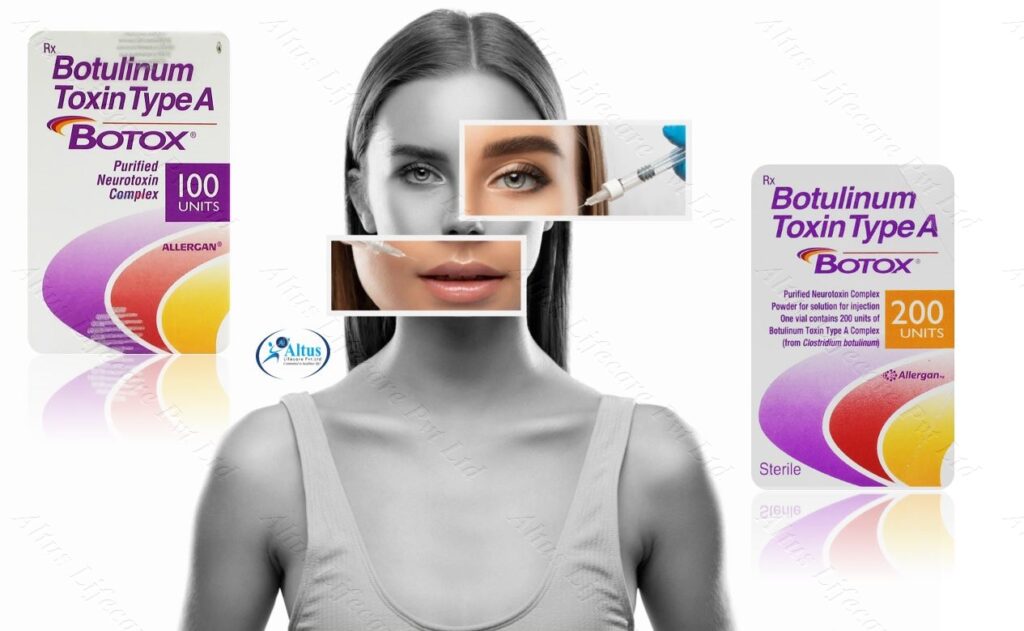
Frequently Asked Questions about Botulinum Toxin (Botox):
What is botulinum toxin?
Botulinum toxin, commonly known as Botox, is a potent neurotoxin produced by the bacterium Clostridium botulinum. It is known for its ability to inhibit muscle contractions by blocking the release of acetylcholine, a neurotransmitter responsible for muscle movement.
How is botulinum toxin used medically?
Botulinum-toxin has a wide range of medical applications. It is used to treat neurological disorders such as cervical dystonia (involuntary neck muscle contractions), spasticity (muscle stiffness), and blepharospasm (involuntary eyelid twitching). It is also used in ophthalmology for conditions like strabismus (misaligned eyes) and blepharospasm. Additionally, botulinum-toxinis used to alleviate chronic migraines and for cosmetic purposes to temporarily reduce the appearance of wrinkles and fine lines.
How does botulinum toxin work in cosmetic procedures?
In cosmetic procedures, botulinum-toxin is injected into specific facial muscles to temporarily paralyze them. By inhibiting muscle contractions, it smooth’s out wrinkles and fine lines, providing a more youthful appearance. The effects typically last for several months before gradually wearing off.
Are there any side effects or risks associated with botulinum toxin?
Like any medical treatment, botulinum-toxin carries some risks. Common side effects include temporary muscle weakness, bruising, and localized pain or swelling at the injection site. Rare but serious complications may include difficulty swallowing, drooping eyelids, or respiratory problems. It is important to receive botulinum-toxin injections from a qualified healthcare professional to minimize these risks.
How long does the effect of botulinum toxin last?
The duration of botulinum-toxin’s effect varies depending on the individual and the specific treatment. Generally, the effects of cosmetic treatments last around three to six months. For medical conditions, the duration can range from several weeks to several months. Regular maintenance injections may be required to sustain the desired effect.
Can botulinum toxin be used for other conditions in the future?
Ongoing research is exploring the potential of botulinum-toxin for various other medical conditions. These include overactive bladder, chronic pelvic pain, temporomandibular joint disorders, and even depression. However, further studies are needed to determine the safety and efficacy of botulinum-toxin in these applications.
Is botulinum toxin safe for everyone?
Botulinum-toxin is generally safe when administered by qualified healthcare professionals. However, certain individuals may have contraindications or increased risks, such as those with known allergies to the toxin, active infections at the injection site, or certain neuromuscular disorders. It is important to discuss any medical conditions, medications, or concerns with the healthcare provider before undergoing botulinum-toxin treatment.
Is botulinum toxin permanent?
No, the effects of botulinum-toxin are not permanent. The toxin’s effects are temporary and gradually wear off over time as the body naturally metabolizes it. Regular maintenance injections may be necessary to sustain the desired results.
Are there alternatives to botulinum toxin for cosmetic procedures?
There are alternative cosmetic treatments available, such as dermal fillers, laser resurfacing, and chemical peels. These procedures work differently from botulinum-toxin and may be suitable for individuals who prefer alternative options or have specific cosmetic concerns. It is best to consult with a qualified cosmetic professional to discuss the most appropriate treatment options.
How can I ensure the safety and efficacy of botulinum-toxin treatment?
To ensure the safety and efficacy of botulinum-toxin treatment, it
a. Seek treatment from a qualified healthcare professional who has experience and expertise in administering botulinum-toxin injections.
b. Provide a thorough medical history, including any allergies, previous medical conditions, and medications you are currently taking.
c. Communicate your expectations and concerns with the healthcare professional to ensure the treatment plan is tailored to your specific needs.
d. Follow the post-treatment instructions provided by the healthcare professional, which may include avoiding strenuous physical activity, certain medications, or facial manipulations for a specified period.
e. Report any unusual or concerning side effects to your healthcare provider promptly.
f. Be aware that the effects of botulinum-toxin are not immediate and may take a few days to fully manifest. Patience and realistic expectations are key.
g. Do not seek botulinum-toxin treatments from non-medical or unlicensed individuals, as it poses significant risks to your health and safety.
h. Understand that botulinum-toxin treatments require maintenance to sustain the desired effects, and regular follow-up appointments may be necessary.
By adhering to these guidelines and seeking treatment from qualified professionals, you can maximize the safety and effectiveness of your botulinum-toxin treatment.
Remember, while botulinum-toxin has proven to be a valuable tool in medical and cosmetic settings, it should always be approached with caution and responsibility. Open communication with healthcare professionals, understanding the potential risks and benefits, and making informed decisions are crucial aspects of ensuring a positive experience with botulinum-toxin treatments.
Is botulinum toxin the same as Botox?
Yes, botulinum-toxin is the active ingredient in Botox. Botox is a brand name for a specific formulation of botulinum-toxin type A, which is widely used for both medical and cosmetic purposes. It is essential to note that there are other brands and formulations of botulinum-toxin available as well, each with their own specific names. When discussing botulinum-toxin, it is important to consider the different brands and formulations that may be used for various treatments.
Can botulinum toxin be used for children?
Botulinum-toxin treatments are generally reserved for adults, but there are certain medical conditions in which it may be considered for use in children. These conditions include spasticity in cerebral palsy or other neurological disorders, muscle spasms, and certain types of strabismus (crossed or misaligned eyes). The decision to use botulinum-toxin in children is made on a case-by-case basis, taking into account the specific condition, potential benefits, and risks involved. It is crucial to consult with a paediatric specialist who has experience in using botulinum-toxin in children.
Are there any long-term side effects of botulinum toxin?
Long-term side effects of botulinum-toxin are rare but can occur. The most common side effects are temporary and localized to the injection site, such as bruising, redness, swelling, and mild pain. These typically resolve within a few days or weeks. Rarely, more severe or systemic side effects may occur, including muscle weakness in areas distant from the injection site, swallowing difficulties, or respiratory problems. However, when administered by a trained professional in appropriate doses, the risk of serious long-term side effects is minimal. It is crucial to discuss any concerns or questions regarding potential side effects with your healthcare provider before undergoing botulinum-toxin treatment.
Can botulinum toxin be reversed or its effects be removed?
While the effects of botulinum-toxin are temporary, there is no specific antidote to reverse its effects once it has been injected. However, the effects of botulinum-toxin will naturally wear off over time as the body metabolizes the toxin. The duration of the effects varies depending on the individual and the specific treatment, but typically ranges from several months to a year. If desired, the effects can be managed or adjusted by a healthcare professional through additional injections or alternative treatments.
Is botulinum toxin only used for cosmetic purposes?
No, botulinum-toxin has both medical and cosmetic applications. While it gained popularity for its cosmetic use in reducing the appearance of wrinkles and fine lines, it has numerous medical applications. Botulinum-toxin is used to treat various neurological conditions, including cervical dystonia, spasticity, and blepharospasm. It is also employed in ophthalmology for conditions like strabismus and blepharospasm, as well as in the management of chronic migraines. The use of botulinum-toxin in cosmetic procedures is just one aspect of its broader therapeutic potential.
Remember to consult with a qualified healthcare professional for personalized advice and information about botulinum-toxin treatments.
Can botulinum toxin be used during pregnancy or while breastfeeding?
The use of botulinum-toxin during pregnancy or while breastfeeding is generally not recommended. As a precautionary measure, it is advised to avoid botulinum-toxin treatments during these periods due to limited research on the potential effects on the developing fetus or the transfer of the toxin through breast milk. The safety of botulinum-toxin use in pregnancy and breastfeeding has not been extensively studied, and it is essential to prioritize the well-being of both the mother and the child. If you are pregnant or breastfeeding, it is important to discuss your specific situation with a healthcare professional who can provide guidance and alternative treatment options.
Can botulinum toxin be used in individuals with a history of allergies?
Individuals with a known allergy or hypersensitivity to botulinum-toxin or any of its components should not receive botulinum-toxin treatments. Allergic reactions to botulinum-toxin are rare but can occur, and it is crucial to disclose any known allergies or previous adverse reactions to your healthcare provider before undergoing treatment. They will evaluate your medical history and determine the suitability of botulinum-toxin or recommend alternative treatments that are safe for you.
Are there any precautions or contraindications for botulinum toxin treatments?
Yes, there are certain precautions and contraindications for botulinum-toxin treatments. Individuals with certain neuromuscular disorders, such as myasthenia gravis or Lambert-Eaton syndrome, may be at increased risk of complications and should avoid botulinum-toxin treatments. It is important to inform your healthcare provider about any underlying medical conditions, medications, or treatments you are currently receiving to ensure the safety and efficacy of botulinum-toxin injections. Additionally, if you have an active infection at the intended injection site, it is recommended to delay the treatment until the infection has resolved.
Can botulinum toxin be combined with other cosmetic procedures?
botulinum-toxin can be combined with other cosmetic procedures, depending on the specific goals and needs of the individual. Many individuals choose to combine botulinum-toxin treatments with dermal fillers, chemical peels, or laser resurfacing to achieve a comprehensive rejuvenation effect. However, it is essential to consult with a qualified cosmetic professional who can assess your specific situation and provide guidance on the most appropriate combination of treatments for your desired outcomes. Safety considerations, potential interactions, and expected results will be taken into account to ensure optimal outcomes and minimize risks.
Remember, the information provided here is for general knowledge and should not replace personalized medical advice. Consultation with a qualified healthcare professional is necessary to assess your individual circumstances and determine the most suitable treatment options for you.
How should I choose a healthcare professional for botulinum-toxin treatments?
Choosing a qualified and experienced healthcare professional for botulinum-toxin treatments is crucial to ensure safe and effective outcomes. Here are some considerations to help you make an informed decision:
Credentials and qualifications: Look for a healthcare professional who is licensed and trained in administering botulinum-toxin injections. Ideally, they should have specialized training and certification in cosmetic or aesthetic procedures.
Experience and expertise: Inquire about the healthcare professional’s experience with botulinum-toxin treatments. Ask how frequently they perform the procedure and how long they have been practicing in the field. An experienced practitioner is likely to have a better understanding of the nuances of injection techniques and can provide optimal results.
Reputation and reviews: Research the reputation of the healthcare professional and their clinic or practice. Read online reviews and testimonials from previous patients to gauge their satisfaction levels and overall experience. Positive feedback and recommendations can be indicative of a reliable and skilled practitioner.
Consultation and communication: Schedule a consultation appointment with the healthcare professional before proceeding with the treatment. This allows you to discuss your goals, ask questions, and assess their approach to patient care. Pay attention to their ability to listen, provide clear explanations, and address your concerns adequately.
Clinic hygiene and safety protocols: Ensure that the clinic or facility where the treatments are conducted adheres to strict hygiene standards and follows proper safety protocols. The use of sterile equipment, a clean environment, and adherence to infection control measures are essential for minimizing risks and ensuring your safety.
Personal comfort and rapport: Trust your instincts and consider your personal comfort level with the healthcare professional. A good rapport and open communication are important for a positive treatment experience.
Cost and affordability: While cost should not be the sole determining factor, it is essential to consider the fees associated with botulinum-toxin treatments. Discuss the pricing structure, including any additional charges or follow-up appointments, to ensure that the treatment fits within your budget.
Remember, do not hesitate to seek a second opinion or explore multiple options before making a final decision. Your safety, satisfaction, and desired outcomes should be the top priorities when choosing a healthcare professional for botulinum-toxin treatments.
Buy Botulinum Toxin online from www.worldclasstretinoin.com


